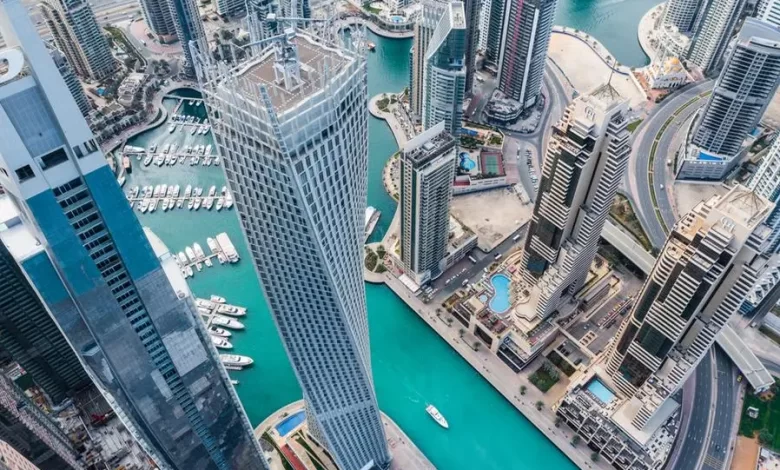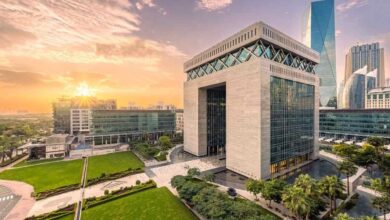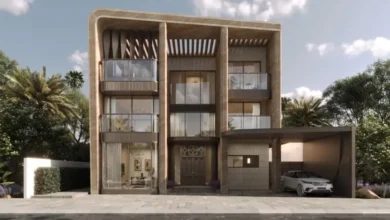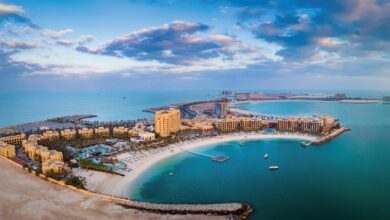
- The UAE’s residential sector witnessed remarkable growth in transactions in both primary and secondary markets in 2023
UAE’s real estate posts robust growth in 2023, says expert
As the UAE continued to demonstrate resilience in the face of challenging global economic conditions, the real estate sector witnessed robust growth across all the major asset classes in 2023, particularly the office and residential sectors, according to leading property expert JLL.
Benefitting from strong demand and continued developer activity, the UAE’s residential sector witnessed remarkable growth in transactions in both primary and secondary markets in 2023, stated JLL in its ‘A Year in Review’ report.
In Dubai, both average sales prices and rental rates saw significant increases of 19% in November 2023 compared to the same period in the previous year. Notably, Dubai’s average villa sale prices continued their upward trajectory, driven by heightened demand, and reached a new all-time high by November, surpassing the previous peak of 2014 by 15%.
According to JLL, over the course of the year, more than 36,000 units were delivered in Dubai, with apartments comprising the majority, raising the total stock to over 719,000 units.
Dubai witnessed a 51% year-on-year increase in value and a 43% y-o-y increase in volume for the period from January to November 2023, according to data from Dubai Pulse.
In Abu Dhabi, successful launches in the off-plan segment contributed to a significant rise in total transaction values, which surged by 102% annually, and a 77% Y-o-Y increase in volume compared to the same period last year.
The capital experienced consistent growth throughout the year with a 5% increase in sale prices and a 2% rise in rental rates on an annual basis in Q4 2023.
In the capital, over 5,000 units were completed, resulting in a total completed stock of over 284,000 units. In 2024, approximately 34,000 units are scheduled to be delivered in Dubai, while around 8,000 units are anticipated in Abu Dhabi.
The positive momentum of the UAE’s residential market is expected to continue in 2024. However, developers will need to be prepared to incorporate the rise in land prices and construction costs, thus perpetuating the trend of smaller unit sizes and launches in secondary areas, it stated.
On the office sector, JLL said new market entrants as well as existing businesses looking to expand their presence in the country are contributing to the growth of the office sector with commercial real estate developers capitalising on the increasing demand through new projects.
Certain free zones in the UAE have also taken proactive measures to expand their jurisdiction or launch new projects within their zones.
The delivery of 92,000 sq m of gross leasable area (GLA) in Dubai, majority comprising Grade A specifications, resulted in the total stock increasing to 9.2 million sq m. An additional 44,000 sq m is scheduled to be added this year, said the report.
While the total stock in the capital remained unchanged at 3.9 million sq m in 2023, Abu Dhabi is expected to introduce approximately 112,000 sq. m. of new office space in 2024, it added.
Faraz Ahmed, Research Director at JLL Mena, said: “Throughout 2023, the UAE’s real estate industry remained a top performer, particularly the office and residential sectors where there was a substantial increase in stock driven by strong demand.”
“With the government focused on strengthening and diversifying the country’s economy, real estate will continue to be a key driver owing to the robust demand and favourable investment climate in the country,” he added.
In Q4 2023, a 15% year-on-year increase elevated average Grade A rents within Dubai’s Central Business District (CBD) to AED2,425 per sq. m. per annum, setting a new market record. Leasing activity also picked up, resulting in a reduction of office vacancies within the CBD to 8%.
In Abu Dhabi, the robust demand continued to drive an impressive 12% y-o-y growth in average city-wide Grade A rents, amounting to AED2,000 per sq. m. per annum. Over the same period, the city-wide vacancy rate marginally decreased to 22% in the capital, said the JLL report.
The market remained firmly in favour of landlords due to high rents and the limited availability of quality space and rising enquiries from occupiers. Consequently, tenants were compelled to reassess their requirements and extend their search to secondary and tertiary areas that potentially offered lower-quality stock, it stated.
In line with its economic diversification efforts, the UAE’s industrial sector is witnessing strong demand from international occupiers who seek superior quality of their industrial facilities and proximity to the air and seaports, it added.
Copyright 2022 Al Hilal Publishing and Marketing Group Provided by SyndiGate Media Inc. (Syndigate.info).





